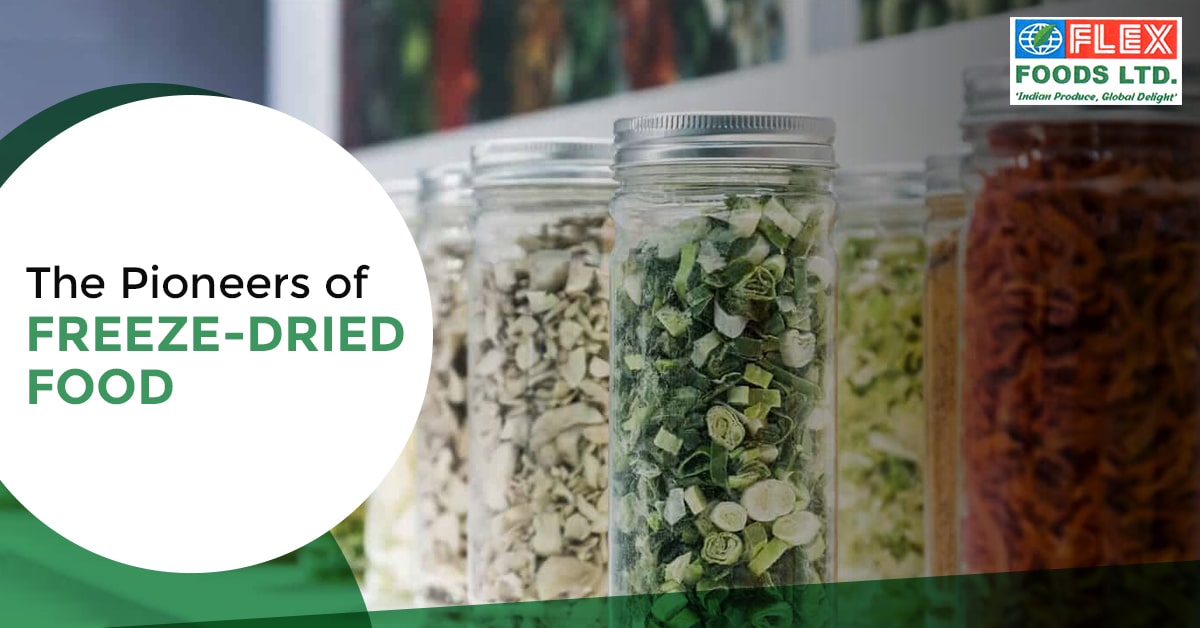Food waste is a pressing global issue, with millions of tons of edible food discarded every year. In India, food waste occurs at various stages of the supply chain, from farming and transportation to retail and consumer levels. One solution that has gained prominence in recent years is Individually Quick Frozen (IQF) vegetables. This technology not only extends the shelf life of vegetables but also plays a significant role in minimizing food waste.
This blog explores the impact of IQF frozen vegetables on reducing food waste, their benefits, challenges, and their role in a sustainable food supply chain.
Understanding IQF Technology
Individually Quick Freezing (IQF) is an advanced freezing method that freezes individual pieces of vegetables rapidly at extremely low temperatures. Unlike conventional freezing methods, where vegetables often freeze in clumps, IQF ensures that each piece remains separate, making portion control easier and reducing waste.
Key aspects of IQF technology include:
- Rapid Freezing: Prevents large ice crystals from forming, preserving texture and nutrients.
- Individual Freezing: Allows consumers to use only the required amount without thawing the entire package.
- Minimal Processing: Retains the original quality, taste, and nutritional value of the vegetables.
How IQF Vegetables Help Reduce Food Waste
- Extending Shelf Life
- Reducing Waste in the Supply Chain
- Portion Control and Convenience
- Minimizing Post-Harvest Losses
- Reducing Household Waste
Fresh vegetables have a limited shelf life and often spoil before consumption. IQF vegetables, on the other hand, can last for months or even years without significant nutrient loss. This reduces household food waste caused by spoilage.
A significant percentage of food waste occurs during transportation and storage due to inadequate preservation methods. IQF technology helps maintain the quality of vegetables from farm to table, minimizing losses during transit.
One of the major advantages of IQF vegetables is portion control. Consumers can use only the required amount and store the rest without waste. This is particularly beneficial for small households, food service providers, and restaurants looking to minimize ingredient wastage.
Farmers often face challenges with surplus produce, which may go to waste due to lack of proper storage or demand fluctuations. IQF processing provides a viable solution by preserving excess harvest and making it available for extended periods.
Consumers frequently discard vegetables due to spoilage, improper storage, or over-purchasing. IQF vegetables eliminate the issue of premature spoilage, allowing individuals to store food for longer periods without compromising quality.
Environmental and Economic Benefits
- Lower Carbon Footprint
- Economic Savings for Consumers and Businesses
- Efficient Land and Water Use
Reducing food waste through IQF vegetables means fewer resources are wasted in production, transportation, and disposal. This directly reduces greenhouse gas emissions associated with food decomposition in landfills.
Households can save money by reducing spoilage-related waste. Similarly, restaurants and food service businesses benefit from cost savings due to better inventory management and portion control.
Food production requires substantial amounts of land and water. By preventing food waste, IQF vegetables and freeze-dried mango contribute to more sustainable agricultural practices and reduced resource exploitation.
Challenges of IQF Technology in Reducing Food Waste
Despite its advantages, there are challenges that need to be addressed to maximize the impact of IQF vegetables in food waste reduction.
- Initial Investment and Infrastructure Requirements
- Energy Consumption
- Consumer Awareness and Adoption
IQF technology requires specialized freezing equipment, storage facilities, and logistics. Many small- scale farmers and food producers may find it challenging to afford the necessary infrastructure.
While IQF preserves food effectively, the freezing and storage process requires significant energy. Ensuring the use of energy-efficient systems and renewable energy sources can help mitigate this issue.
Many consumers in India still prefer fresh vegetables over frozen options due to perception biases. Educating consumers about the benefits of IQF vegetables, their nutritional equivalency to fresh produce, and their role in reducing waste is essential for widespread adoption.
The Future of IQF Vegetables in India
As the Indian market evolves, IQF vegetables are expected to play a more prominent role in food sustainability. The following trends indicate a promising future for this technology:
- Expansion of Cold Chain Infrastructure: Investments in cold storage and logistics will enable better distribution of IQF products across the country.
- Growing Demand for Convenience Foods: Urbanization and busier lifestyles are driving demand for convenient, ready-to-cook ingredients like IQF vegetables.
- Government Initiatives and Policies: Encouraging food processing industries and reducing food waste aligns with national policies focused on sustainability and food security.
- Technological Advancements: Innovations in freezing technology may further enhance efficiency, reduce costs, and improve product quality.
Conclusion
IQF frozen vegetables offer a practical and effective solution for reducing food waste at multiple levels of the supply chain. Their ability to extend shelf life, prevent spoilage, and provide portion control makes them a sustainable choice for consumers and businesses alike. While challenges exist, advancements in technology, infrastructure development, and consumer awareness can help unlock the full potential of IQF vegetables in India’s fight against food waste.
By embracing IQF technology, freeze dried food in India can move towards a more sustainable and efficient food system, benefiting both the economy and the environment.

